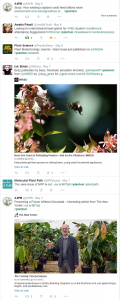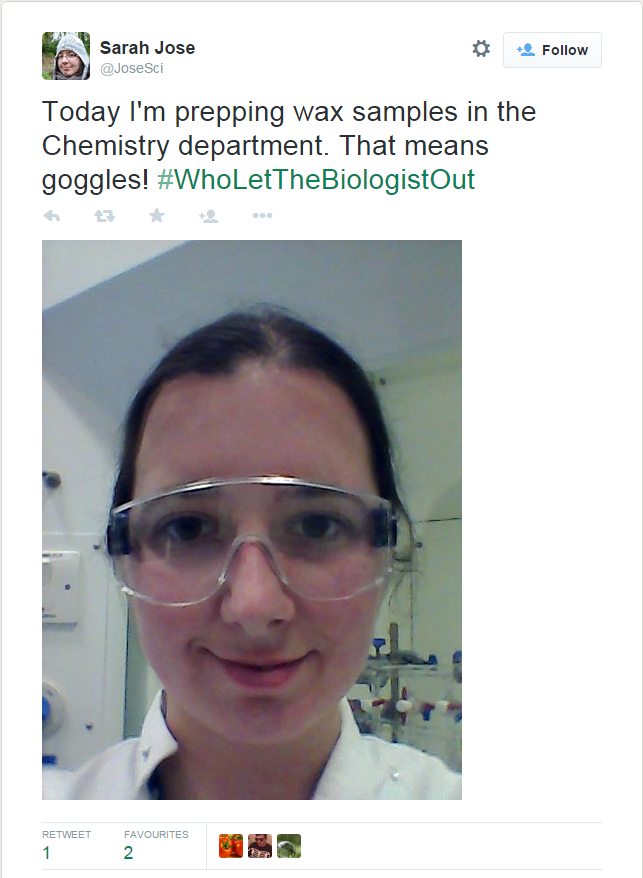Thomas O’Shea-Wheller is a final year PhD student in Biology. He studies the behaviour and social organisation of ants, with a particular interest in how complex collective behaviours may emerge from simple rules at the individual level. His research has been featured on the BBC, PBS and Wired, among others. Photo credit: Mengqiong Zhou.
From the moment I started my PhD, I knew that I wanted to engage people with my research. After all, that was how I first became interested in science; by learning about the work and discoveries of others, and so I was eager to elicit those same feelings of enthusiasm that I had felt as a child.
The only problem was, I had no idea how to go about doing it. Initially, it was far from clear which of the many avenues of ‘public engagement’ were actually worth the time and effort, and besides that, if anyone even cared about the work of a PhD student. After doing some research, however, it became apparent to me that much of the exposure that could be received in science was dependent upon making your work accessible, rather than upon its exact subject. Such a revelation could at first seem like a bad thing; after all, shouldn’t research be ascribed coverage based on its merit and scientific significance alone? In fact, what it means in practice, is that all scientists have the potential to intrigue and fascinate others with their work. Of course, ground-breaking discoveries are guaranteed to receive ample attention, and justly so, but with the right approach, so can more modest advances. There is, however, one caveat to achieving this; you need to be able to crystallise precisely what makes your work interesting.
I’ll admit that I consider myself fortunate in this regard; my area of research, the collective behaviour of ants, is relatively relatable and easy to explain, since most people have at least heard of the industrious insects. That said, whether you study trans-membrane receptors, or the self-organising properties of chemical compounds, it matters not, as all research has one uniting faculty that lends itself well to public engagement. Specifically, if you are investigating anything scientifically, it is because you hope to find something of use, or at the very least, something novel. This—by its very nature – is going to be intriguing to people, and all that you have to do is explain it in a way that will foster understanding.
Making your science accessible is, somewhat ironically, more akin to an art; a delicate balance between removing unnecessary complexity and avoiding an overt ‘dumbing down’ of the core concepts. The best advice I can give is to focus upon isolating the central points or messages that are most important to a piece of research, while doing so in as straight-forward a manner as possible. A distillation, so to speak.
Once you have some practice in summarising your research effectively (and practise you will need), the final piece of the ‘puzzle’ concerns how best to disseminate your findings, in order to reach the people you wish to engage. The answer to this really depends on your personal aims and target audience, do you want to inform the general public? The scientific community? Or perhaps a combination of both? Activities such as science demonstrations and talks to schools are a great way to gain experience, and most institutions provide ample chances to do both. However, if you truly wish to reach the widest audience, and make a lasting impression, publication of your work is key, as it paves the road to media coverage.
It goes without saying that in an increasingly technologically-centred society, digital media really does form the heart of any effective promotion or engagement strategy. So, how can you go about getting such coverage? It is often a lot easier than you might think. If there is one key point to take away from this post, it is that preparing and disseminating good quality press releases is probably the most important factor in increasing the media impact of your research. The good thing about this, is that it is relatively easy to do; simply contact the relevant journal prior to the publication of your article, and discuss putting together a statement. Furthermore, you can ask the same of your university’s press office, as they will often distribute a summary of your research in tandem with the journal, and are usually more than happy to do so.
Just ensure that you are not idle.
The reason I bother to mention this, is that it is something that it is so rarely taught, or even mentioned, but has a massive impact; an effective press release can literally mean the difference between a national headline, and a complete lack of interest. Put simply, by the time you are publishing a piece of research, you have already invested (often very) considerable effort into it, so why neglect the final stage, when it may determine whether anyone actually reads it?
Fortunately, there is now a promising trend towards more awareness on the part of PhD students when disseminating their research. Student press-groups, and better information relating to the benefits of press coverage, have become markedly more common in the few years since I began my PhD. Still, there is a lot to be said for actively promoting your own work; do not be afraid to contact the press offices of journals and institutions alike. If they are going to publish your work, ensure that they promote it as well.
On a parting note, the more practice you have, the better you will become at it, and in terms of the cost-benefit trade-offs (apologies, I am a biologist) I can think of few other public engagement activities that are so rewarding.









